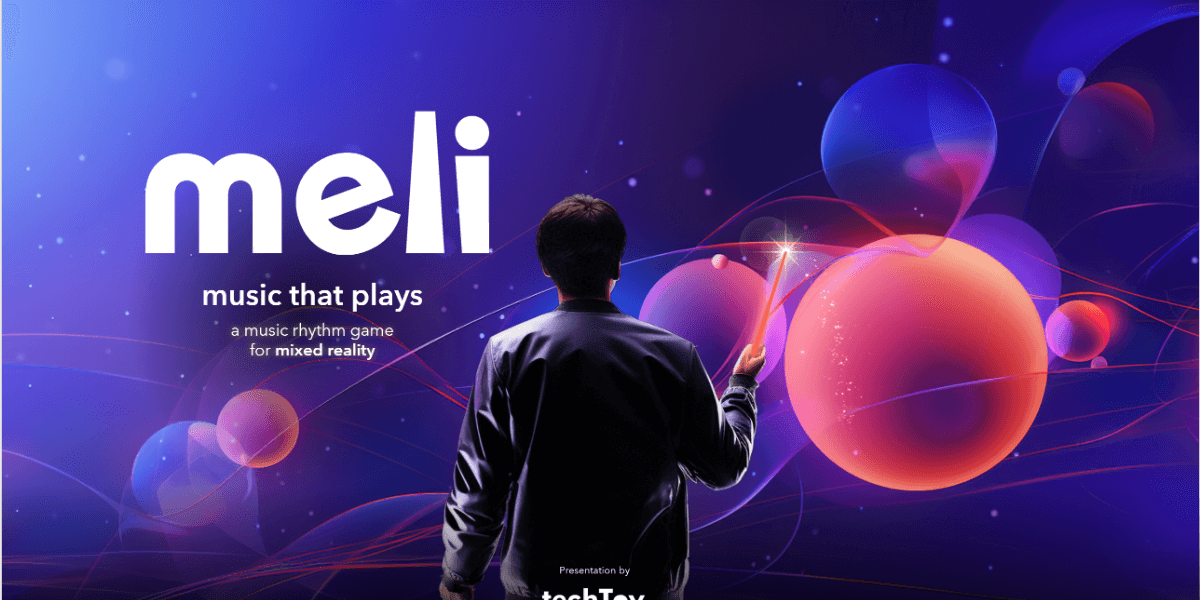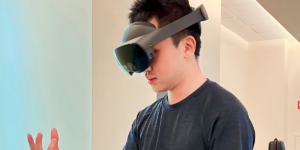
Meli is the newest XR video game that allows players to step into the shoes of a music conductor.
With over 20,000 lines of code written, a 22-year-old is currently building an interactive music experience with hopes of revolutionizing the music industry through extended reality (XR).
Early on in high school, Ethan Soo fell in love with the concept of XR, an umbrella term used to classify the mixed realities of augmented reality (AR) and virtual reality (VR). At just 15 years old, he enrolled himself in Udacity’s VR development program, which he described as a “stepping stone for learning the fundamentals of VR.”
To further pursue his passion for VR in college, Soo transferred from San Jose State University, where he was studying computer science, to the USC Viterbi School of Engineering, where he is currently a senior studying computer science/games.
“I decided to transfer after a year and a half at San Jose State University because USC CS/Games was more towards what I want to do after college – producing games,” said Soo, a student in the newly announced USC School of Advanced Computing, a unit of the USC Viterbi School. “The major is special in that you can take game classes in the cinema department to learn important topics such as game design principles and Unity.”
Months after transferring to USC, in 2022, Soo founded Techtoy, a mixed-reality design studio focusing on emerging technology and new forms of perception.
With a vision to create out-of-this-world XR products, Techtoy hopes to push the boundaries of technology and bring it into the gaming industry.
Earlier this year, Techtoy released Neon City, a hand-tracking VR experience where the user can build the city of their dreams using their imagination. It allows the user to experience their built city in a one-to-one scale.
Currently, TechToy is building Meli, a mixed-reality rhythm game where players step into the shoes of a music conductor.
Specifically, the game consists of the user holding a baton in one hand and a light circle in another. The objective of the user is to use the object in each hand and time the rhythm notes of a song.
“A couple of years ago, I got into Beat Saber and realized that experiencing music is more than just listening to it. It’s about interacting with it,” said Soo. “If you can passively listen to music, you can correspond with where it’s going. If you can interact with music while visualizing it, it’s a new way of experiencing music — which is why Meli is special.”
The idea of the game consists of moving the baton in different directions. Based on how the baton is moved, the game reacts differently, encouraging unique user interactions.
Combining Unity, a game development platform known for its versatility and accessibility in the creation of interactive content, with VR headset technology, Soo and his company have built their interaction framework that will be “able to be used for different types of experiences in the future, not just Meli.”

Ethan Soo Playing the Techtoy, Meli
“The newer VR headsets have two technologies included in them that we’ve been looking at recently: hand-tracking technology and pass-through technology,” said Soo. “Hand-tracking technology allows users to interact with virtual reality features without having to hold onto a controller, which makes games like Meli a lot easier to play. Pass-through technology is where you can see your environment through the headset, which is a feature we’ve implemented in Meli as well.”
Meli is now focusing on releasing their early release at the Game Developers Conference (GDC) in March 2024, with over 120 minutes of repeatable gameplay.
“For now, our team is focused on finishing the tech stack with Meli. After our initial launch, the focus will shift to the visual designs,” said Soo.
Meli will be available on the Quest Store, and will be released as a free demo version in the AppLab.
Published on March 18th, 2024
Last updated on March 25th, 2024












